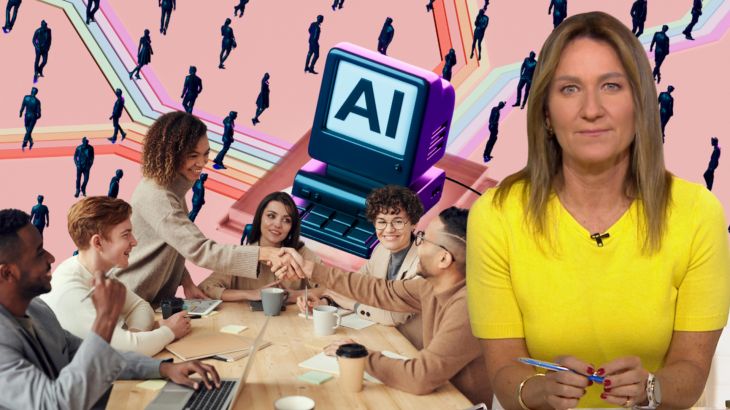
News
November 05, 2025
How will AI impact jobs?
We look at how AI is affecting jobs, and how gender and age influence who uses it.
The rise of artificial intelligence (AI) is no longer a futuristic fantasy; it's a present-day reality reshaping industries and, crucially, the job market. From automating routine tasks to assisting with complex decision-making, AI's potential impact is vast, prompting both excitement and anxiety about the future of work. But how exactly is AI affecting jobs, and are some demographics more engaged with this technological shift than others?
While predictions of widespread job displacement due to AI often grab headlines, the reality is more nuanced. Experts believe AI is more likely to augment human capabilities than completely replace them, at least in the near future. This means AI can handle repetitive or data-heavy tasks, freeing up employees to focus on more creative, strategic, and interpersonal aspects of their roles. For example, AI-powered tools can analyze market trends, allowing marketing professionals to concentrate on developing innovative campaigns and building stronger customer relationships.
However, this shift also requires workers to adapt and acquire new skills. The demand for professionals who can work alongside AI, interpret its outputs, and manage AI systems is growing rapidly. This includes roles in data science, AI development, and AI ethics. Those who are unwilling or unable to adapt to this changing landscape may face challenges in maintaining their employment.
Interestingly, studies are beginning to reveal how different demographic groups are interacting with AI in the workplace. Gender and age seem to play a role in AI adoption and usage. Preliminary data suggests that certain age groups may be more hesitant to embrace AI tools, potentially due to a lack of familiarity or concerns about job security. Similarly, gender disparities may exist in certain AI-related fields, potentially stemming from existing gender imbalances in STEM (Science, Technology, Engineering, and Mathematics) education and careers.
Understanding these demographic trends is crucial for ensuring a just and equitable transition in the age of AI. Targeted training programs and educational initiatives can help bridge the skills gap and empower individuals of all ages and genders to thrive in an AI-driven economy. Ultimately, the impact of AI on jobs will depend not only on the technology itself, but also on how we prepare and support the workforce to embrace its potential. The key is to view AI not as a threat, but as a tool that, when used responsibly, can enhance productivity, create new opportunities, and improve the overall quality of work life.
While predictions of widespread job displacement due to AI often grab headlines, the reality is more nuanced. Experts believe AI is more likely to augment human capabilities than completely replace them, at least in the near future. This means AI can handle repetitive or data-heavy tasks, freeing up employees to focus on more creative, strategic, and interpersonal aspects of their roles. For example, AI-powered tools can analyze market trends, allowing marketing professionals to concentrate on developing innovative campaigns and building stronger customer relationships.
However, this shift also requires workers to adapt and acquire new skills. The demand for professionals who can work alongside AI, interpret its outputs, and manage AI systems is growing rapidly. This includes roles in data science, AI development, and AI ethics. Those who are unwilling or unable to adapt to this changing landscape may face challenges in maintaining their employment.
Interestingly, studies are beginning to reveal how different demographic groups are interacting with AI in the workplace. Gender and age seem to play a role in AI adoption and usage. Preliminary data suggests that certain age groups may be more hesitant to embrace AI tools, potentially due to a lack of familiarity or concerns about job security. Similarly, gender disparities may exist in certain AI-related fields, potentially stemming from existing gender imbalances in STEM (Science, Technology, Engineering, and Mathematics) education and careers.
Understanding these demographic trends is crucial for ensuring a just and equitable transition in the age of AI. Targeted training programs and educational initiatives can help bridge the skills gap and empower individuals of all ages and genders to thrive in an AI-driven economy. Ultimately, the impact of AI on jobs will depend not only on the technology itself, but also on how we prepare and support the workforce to embrace its potential. The key is to view AI not as a threat, but as a tool that, when used responsibly, can enhance productivity, create new opportunities, and improve the overall quality of work life.
Category:
Technology